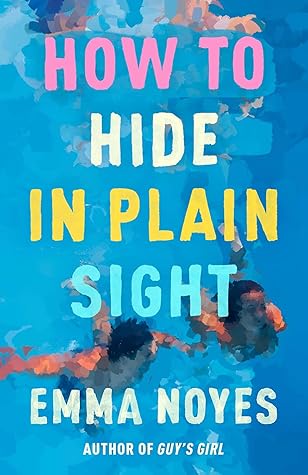More on this book
Community
Kindle Notes & Highlights
Because once the bones are assembled, once they’re wrapped in shiny plastic skin and sent off into the abyss to become plastic wrappers or tin cans or email marketing or blog posts or whatever the fuck, that’s it. They’re gone. Your words no longer belong to you. In fact, they never did.
Family isn’t about telling the truth. It’s not about starting from the real beginning. To your family, you tell the story they need to hear. And I knew that my family didn’t actually care about the crowd of humanity that had swept me and my two suitcases down Seventh Avenue, about bobbing up and down in their current, gasping for air, praying I was moving in the right direction, whatever that direction might be. They
The illness does take its toll on my parents’ marriage, as all illnesses do. It’s not as if they’re so deeply, deeply in love that divorce is unthinkable. No—they stay together for the Family, that strange concept created as much by the collective belief in a thing’s existence as by the thing itself.
Nothing scares a bully more than something they don’t understand.
As they speak, my temperature rises. It doesn’t feel like anger; it feels like foresight.
I catch his eye the minute he gets on. It isn’t necessary, of course; he knows where to find me. But I do it anyway. I like the way his eyes expand and brighten when he sees me, just a little, just around the edges. It’s the best part of my morning.
“I didn’t run.” (Running was exactly what I did.)
She wasn’t afraid of the dark; she was afraid of the emptiness that comes with it.”
To shield me from my Worries. Because they might have been silent for now, but their memory remained; they lingered at the edges of my consciousness, like the little flare-up of obsession over a piece of spit at dinner, a silent reminder of the power they once held over me. A voice that could, at any moment, come roaring back to life.
I’m a child with parents who rarely display affection, who tell their children they love them but never seem to tell each other.
Happiness, to me, isn’t a presence. It’s an absence. The absence of Worry. Of fear. Of sadness.
Here’s the thing about losing a brother at age ten: you wobble atop that precarious point, the threshold of lasting memory, when every moment could fall to either side—into the slim collection of images that will one day make up your past, or into the far more extensive chasm of the forgotten, of moments too ordinary or too shameful or too terrifying to keep forever. You might live every moment, but they don’t stay. Not all of them. Most disappear, sucked into that yawning abyss of memory. And those that do remain will be nothing but snippets. Hazy photographs. Paper memories to which you’ll
...more
How do you form meaningful relationships with a family you didn’t grow up with? The answer, I had come to see at last, was this: you can’t. You might think that as you grow up, it gets easier. To make friends with your siblings, I mean. You age. You mature. You harden from that adorable, irritating little bag they have to carry around into something resembling a human adult. When that happens, you get to take your seat at that proverbial table. Right? Wrong. That gap might shrink, but it will never close altogether. You’re left with one option: Build your own family. Choose your own identity.
But the craziest part, the most baffling, ridiculous part of all, is that these people—the ones who cut the paths you must follow, who standardize familial traditions, who leak personality traits and isms that you absorb without meaning to, an accidental human sponge—you don’t know them. Not really.
He lifted a hand and brushed the back of his
We often make the mistake of believing humans are predictable. That they live by patterns. Especially if it’s someone you trust.
terrifies me to lose the only bridge I have to his mind. To feel deprived of his words, the ones he chooses so carefully—the ones that float to my ears like small vivid rings of smoke.
Maybe they won’t invite what they can’t understand.
“It’s just your OCD,” he adds, also for the fortieth time. “It’s trying to trick you into thinking you’re a bad person again.”
Unfortunately, there’s something about stargazing that loosens one’s tongue. I think it’s that talking to the stars is easier than talking to someone’s face. Flat on your back, sending words into that vast, empty blackness—it’s easy to feel that those words are of no consequence. They go nowhere. Sucked straight into the vacuum. So you speak freely, and always—always—you reveal more than you intended.


